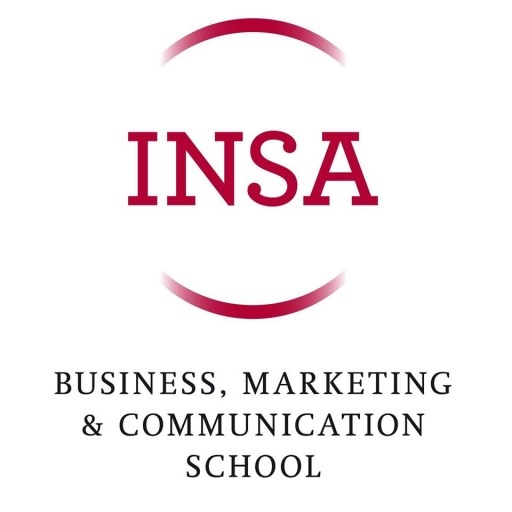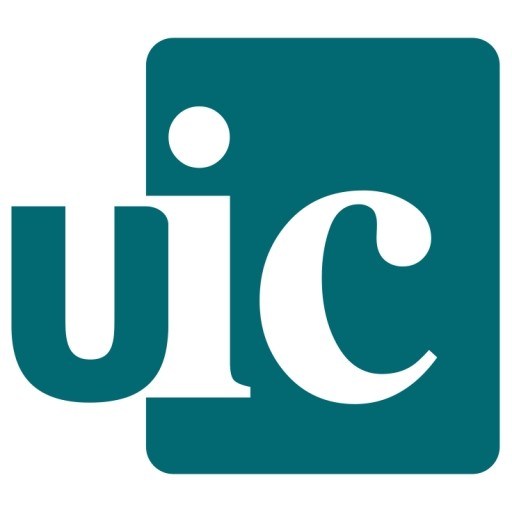Photos of university / #insabarcelona
Program Overview: Master in Protocol and Organization
The Master in Protocol and Organization at INSA Business School is a comprehensive and specialized postgraduate program designed to equip students with the essential skills and knowledge necessary to excel in the fields of event management, diplomatic protocol, corporate communication, and organizational administration. This program blends theoretical foundations with practical applications, ensuring that graduates are prepared to meet the complex demands of international and domestic organizational environments.
Throughout the course, students will explore a wide range of topics, including the principles of diplomatic protocol, international relations, corporate etiquette, event planning, and strategic communication. The program emphasizes the development of intercultural competencies, negotiation skills, and the ability to design and implement high-profile events and protocols that adhere to international standards. Students will also gain insights into organizational behavior, leadership, and management techniques crucial for effective administration in various contexts.
The curriculum is delivered through a combination of lectures, case studies, workshops, and real-world projects, fostering active learning and practical skill development. Collaborations with industry professionals, diplomatic missions, and event organizers provide students with valuable networking opportunities and hands-on experience. The program also offers modules on digital communication and modern technological tools, preparing students for the evolving landscape of organizational management.
Graduates of the Master in Protocol and Organization will be positioned for careers in diplomatic services, governmental agencies, international organizations, multinational corporations, event planning companies, and consulting firms. They will possess the abilities to design and execute complex organizational operations, ensure compliance with protocol standards, and effectively communicate across diverse cultural contexts. This program aims to nurture future leaders who can navigate the challenges of international and organizational diplomacy with professionalism and strategic insight.
By completing this master's program, students will not only enhance their organizational and diplomatic expertise but also develop critical thinking, problem-solving abilities, and a global perspective essential for success in the competitive international arena. The INSA Business School’s commitment to academic excellence and industry relevance ensures that graduates are well-prepared to make impactful contributions in their chosen fields.
The course will cover the following sections:
• Introduction to the Protocol and Ceremonial
• Ordering protocol: Chairs and Guest positioning systems
• Written Communication and Protocol
• Legend: Anthems and Flags
• Organization of events: Logistics protocol
• Etiquette: Etiquette and etiquette
• Law and Legislation applied to the Protocol
• International Protocol
• Heraldry
• Communication with Business Strategy
• Oral communication techniques and presentations
• Public Relations
• Final Project
Program requirements for the Master in Protocol and Organization at INSA Business School typically include a combination of academic prerequisites, professional experience, and language proficiency. Applicants are generally expected to hold a recognized undergraduate degree or equivalent in fields related to business, management, communication, or international relations. Specific academic transcripts demonstrating successful completion of undergraduate studies are required, along with a minimum GPA or equivalent academic standing, which varies depending on the applicant’s country of origin and educational background.
In addition to academic qualifications, candidates often need to submit a detailed Curriculum Vitae highlighting relevant work experience, internships, or involvement in events related to protocol, organization, or management. Professional experience in event planning, diplomatic services, or organizational roles can enhance an applicant’s profile and are considered advantageous during the evaluation process. Some programs may require applicants to provide letters of recommendation from academic or professional references to attest to the candidate’s capabilities and motivation.
Proficiency in English is essential, and applicants may need to submit standardized test scores such as TOEFL or IELTS unless they have completed previous education in English. Certain exceptions or waivers may apply for native speakers or those who have studied extensively in English-language institutions.
Furthermore, applicants must prepare and submit a motivation letter outlining their interest in the program, career objectives, and how the Master in Protocol and Organization aligns with their professional development plans. An interview process may be part of the admissions procedure to assess the candidate’s motivation, communication skills, and suitability for the programme.
Overall, the selection process at INSA Business School aims to admit students who demonstrate academic readiness, relevant experience, and a clear motivation to excel in the field of protocol and organizational management. The program emphasizes diverse backgrounds and international perspectives to foster a rich learning environment dedicated to developing future leaders in international relations, diplomatic protocol, and organizational leadership.
The Master in Protocol and Organization at INSA Business School offers a variety of financing options to assist students in managing the costs of their studies. Prospective students can explore a range of scholarships, grants, and financial aid programs designed to support excellence and accessibility. INSA Business School provides merit-based scholarships for outstanding applicants, which are awarded based on academic performance, professional experience, and motivation. These scholarships may cover partial or full tuition fees and are subject to specific eligibility criteria and application procedures. Additionally, the school collaborates with governmental and private financial institutions to facilitate student loans with favorable interest rates and repayment terms, enabling students to finance their education without immediate financial burden. Some funding options are specifically targeted at international students, promoting diversity and inclusion within the program. Moreover, INSA Business School periodically offers promotional discounts and early registration benefits, which can reduce the overall cost of the program. Students are also encouraged to seek external funding sources such as industry sponsorships, employer reimbursement programs, and specialized scholarships from external foundations or organizations aligned with their career goals. The school’s financial aid office provides comprehensive guidance and counseling to help applicants identify the best funding strategies tailored to their personal circumstances. It is advisable for applicants to inquire early about available financing options to ensure timely application and maximum benefit. Overall, INSA Business School is committed to making postgraduate education accessible through its diverse range of financial support initiatives, allowing students to focus on their academic and professional development without undue financial stress.
The Master in Protocol and Organization offered by INSA Business School is a specialized postgraduate program designed to equip students with the essential skills and knowledge required for a successful career in international protocol, event organization, corporate communication, and international relations. The program focuses on providing a comprehensive understanding of protocol norms, diplomatic practices, event management, and organizational strategies within a global context. Students engage with a curriculum that combines theoretical foundations and practical applications, enabling them to effectively plan, organize, and manage high-profile events, diplomatic functions, and corporate occasions. Throughout the course, participants develop competencies in cross-cultural communication, negotiation skills, and strategic planning, which are crucial for working in international settings. The program also emphasizes the importance of ethical considerations and the development of leadership qualities pertinent to organizational and diplomatic environments.
Students benefit from a variety of teaching methodologies, including case studies, internships, workshops, and seminars led by experienced professionals from diplomacy, international organizations, and the private sector. These practical experiences aim to prepare graduates to handle real-world challenges, fostering adaptability and innovative thinking. The program often includes modules on legal frameworks, cultural sensitivities, crisis management, and media relations, ensuring graduates are well-rounded and capable of managing complex situations in diverse environments. The Master in Protocol and Organization aims to produce versatile professionals capable of working within governmental bodies, international institutions, embassies, corporations, and event management agencies.
The duration of the program typically spans one year if pursued full-time, with flexible options for part-time study. Admission usually requires a relevant undergraduate degree, proficiency in English and/or French depending on the language of instruction, and a motivation statement outlining the applicant's career goals. Graduates of this master's program find careers in diplomatic services, international NGOs, multinational companies, event planning agencies, and government agencies involved in protocol and international relations. The program's reputation is reinforced by its association with INSA Business School, renowned for its focus on business, management, and international affairs. Overall, the Master in Protocol and Organization offers a comprehensive education tailored to meet the evolving needs of international and organizational communication, positioning graduates as capable professionals in the global arena.





